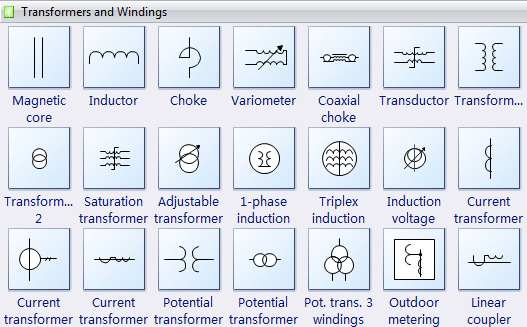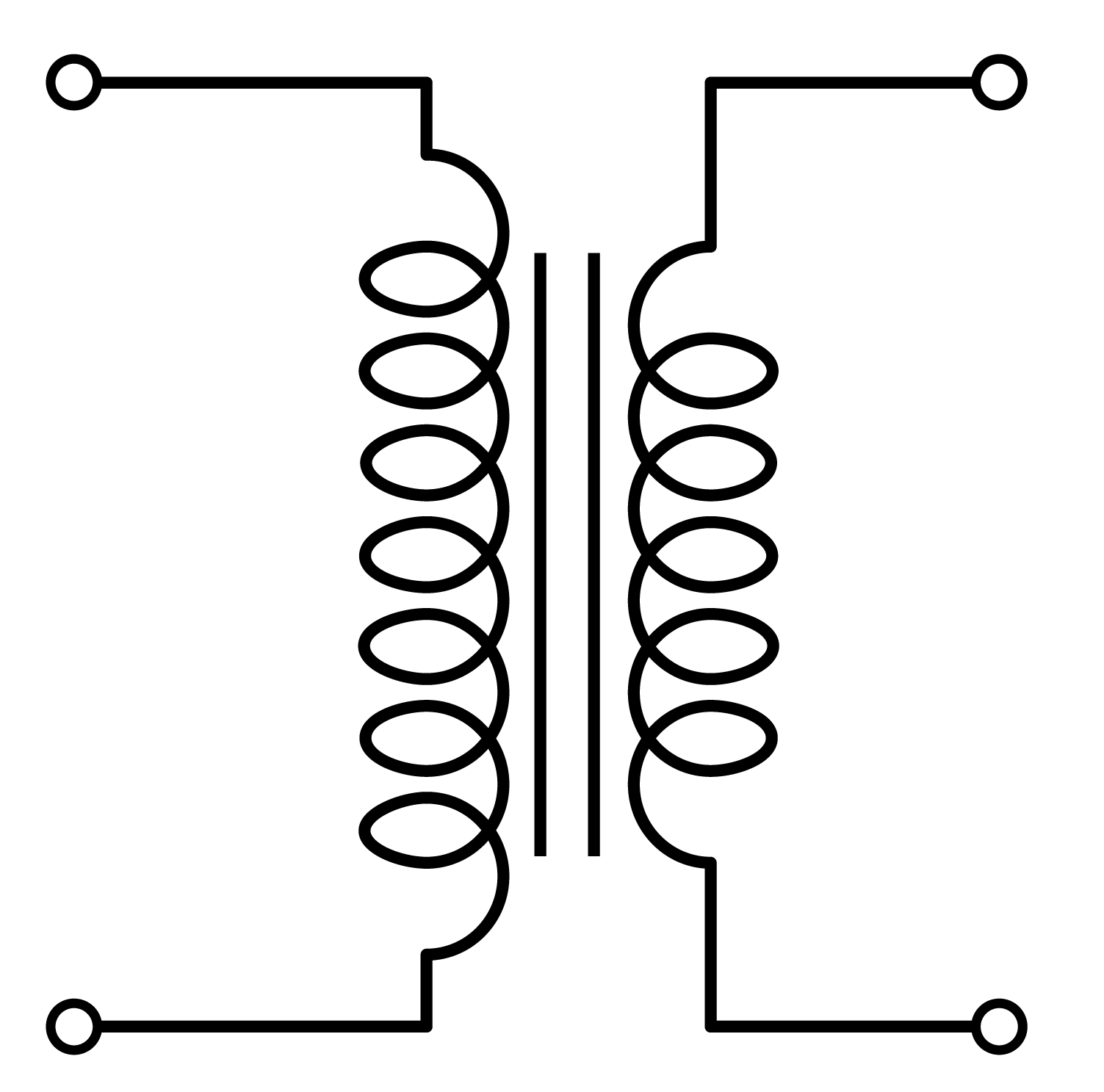Unlocking Electrical Blueprints Understanding Transformer Symbols
Imagine trying to decipher a complex map without understanding the symbols. That's the challenge faced when encountering electrical diagrams without a grasp of transformer symbols. These visual representations are the language of electrical blueprints, conveying crucial information about the type and function of each transformer within a circuit. Mastering these symbols is essential for anyone working with electrical systems, from students to seasoned engineers.
Electrical transformer symbols provide a shorthand for representing these vital components in circuit diagrams. They allow engineers and technicians to quickly identify the type of transformer, its winding configuration, and other important characteristics without needing lengthy descriptions. This visual language streamlines the design and analysis of electrical systems, making complex circuits more manageable and understandable.
The history of electrical transformer symbols is intertwined with the development of electrical engineering itself. As transformers became more complex and diverse, the need for standardized symbols arose. These symbols evolved over time, incorporating new transformer types and configurations, reflecting the ongoing advancements in transformer technology. Understanding this evolution provides context for the diverse range of symbols encountered today.
The importance of accurately interpreting transformer symbols cannot be overstated. Misinterpreting a symbol can lead to errors in circuit design, potentially resulting in malfunctioning equipment or even safety hazards. Therefore, a solid understanding of these symbols is critical for ensuring the safe and efficient operation of electrical systems.
One of the main issues related to transformer symbols is the potential for confusion between different types. Some symbols can appear similar, especially to the untrained eye. This highlights the need for clear and consistent use of standardized symbols, as well as proper training and education for anyone working with electrical diagrams.
Transformer symbols represent various transformer types, including autotransformers, power transformers, current transformers, and potential transformers. Each has a unique symbol depicting its specific function and configuration. For instance, an autotransformer symbol shows a single winding with a tap, while a power transformer symbol depicts two separate windings. A current transformer's representation emphasizes its role in measuring current, and a potential transformer's symbol indicates its voltage measuring function.
Benefits of understanding transformer symbols include efficient circuit analysis, accurate component identification, and enhanced communication among electrical professionals. For example, quickly recognizing a current transformer symbol on a diagram allows an engineer to understand its role in the circuit without needing to consult lengthy documentation.
Creating an action plan for mastering transformer symbols involves studying standard electrical symbols, practicing diagram interpretation, and utilizing resources like textbooks and online tutorials. Successful implementation requires consistent practice and a commitment to continuous learning.
Advantages and Disadvantages of Standardized Transformer Symbols
| Advantages | Disadvantages |
|---|---|
| Clear communication | Requires learning and memorization |
| Simplified circuit analysis | Potential for confusion between similar symbols |
| Efficient design process | Variations in standards across different regions or industries |
Best practices for using transformer symbols include adhering to established standards, using clear and concise diagrams, and providing adequate labeling. Always double-check symbol usage to ensure accuracy and clarity.
Real-world examples of transformer symbols can be found in electrical schematics for power distribution systems, industrial control circuits, and electronic devices. Understanding these symbols is crucial for analyzing and troubleshooting these systems.
Challenges in interpreting transformer symbols might include encountering unfamiliar symbols or dealing with complex diagrams. Solutions involve consulting reference materials, seeking expert advice, and using software tools for circuit analysis.
FAQs about transformer symbols often cover topics such as identifying different types, understanding their function, and interpreting complex diagrams. Resources for further learning include electrical engineering textbooks, online tutorials, and industry standards documents.
Tips for mastering transformer symbols involve creating flashcards, practicing with sample diagrams, and using interactive learning tools.
In conclusion, the ability to interpret electrical transformer symbols is a cornerstone of electrical engineering. These visual representations are much more than just simple markings; they are the keys to unlocking the functionality and intricacies of complex electrical systems. From ensuring the safe operation of power grids to designing cutting-edge electronic devices, understanding transformer symbols is paramount. By mastering this visual language, we empower ourselves to navigate the world of electrical circuits with confidence and precision. Investing time and effort in learning and practicing with transformer symbols is an investment in your electrical engineering proficiency, paving the way for success in this dynamic field. Don't just look at the symbols – understand their meaning, and unlock the power they hold.
Unlocking wanderlust the magic of travel gift certificates
Behr paint colors decoding the hype and choosing the right hue
Unlocking branding versatility the power of a logo on transparent background














